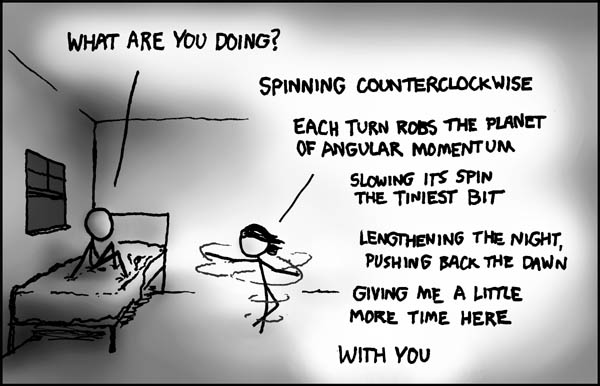Short review: Franz Ferdinand evades Gavrilo Princip and World War I never happens. From there, the author envisions two very different worlds in extreme detail.
Haiku
Franz Ferdinand lives
World War I is averted
And two worlds ensue
Disclosure: I received this book as part of the LibraryThing Early Reviewers program. Some people think this may bias a reviewer so I am making sure to put this information up front. I don't think it biases my reviews, but I'll let others be the judge of that.
Full review: Archduke Franz Ferdinand Lives! imagines a world in which the titular archduke and his spouse manage to avoid being killed by Gavrilo Princip in Sarajevo on June 28, 1914. From there, Lebow posits that World War I could have been avoided, resulting in a posited pair of alternative histories, one alleged to be "better", and one described as "worse". Unfortunately, Lebow's hypothesized counterfactuals are poorly supported, tediously overlong, and ultimately unconvincing.
In the opening pages of the book, Lebow discusses the primary point of departure from history that he envisions - Archduke Franz Ferdinand's motorcade does not take a wrong turn, does not pass near where Princep lay in wait, and the Archduke doesn't die with a bullet in his neck. This, Lebow contends, would be sufficient to avert World War I, asserting that without this one incident, the great powers of Europe would behave reasonably and rationally, and, if no similar trigger occurred by 1919 or so, everyone would realize that peace was in their national interest and give up war permanently. This assessment seems, at best, overly optimistic. Even if the provocation of Ferdinand's assassination not happened, the powers of Europe were poised for war, harboring ambitions and grievances that probably would have put them on a collision course.
Lebow contends that it would not have been in the best interests of the European powers to fight a war, but nations often do not act rationally. Germany was hungry for the prestige that came with colonies. That, and Kaiser Wilhelm's obsession with naval power, put Germany on a collision course with Britain. France was still seething over the loss of Alsace-Lorraine forty years earlier, and Austro-Hungary itself had been willing to precipitate an international crisis that almost resulted in war as recently as 1908 when it annexed Bosnia-Herzegovina. Italy had territorial ambitions in land that was controlled by Austro-Hungary, and Russia was a dangerous combination of apparently powerful and self-consciously insecure, politically positioned in such a way that it had to respond to almost any provocation to maintain its status as a great power. But Lebow dismisses this and all of the other intertwined tensions with little more than a hand wave.
And this reveals what is essentially the weakness that runs through the book. Lebow takes complex situations and then uses simplistic and reductive assertions to brush reality aside to fit the conclusion he wants. Lebow doesn't come up with reasoned arguments in support of his proffered counterfactuals so much as he simply asserts that his preferred outcome is the most reasonable one and then forges ahead blithely dismissing that there could be counterarguments in an off-hand manner. Between Lebow's wildly optimistic faith in the reasonableness of nations and his raw assertions of how events would play out, the book feels more like a wish-list of fantasies rather than an evaluation of what might happen had history been different.
I don't mean to suggest that all of Lebow's predicted changes are ill-supported: So long as he is dealing with the broad strokes of history he seems to be on reasonably solid ground. Had World War I never happened, the Versailles Treaty would have never happened, which makes World War II less likely. Without World War I, the Russian Revolution would have been far less likely, meaning the Soviet Union would likely not have existed, and the Cold War would have not taken place. And so on. But these sorts of observations are trivial, and even banal, and not the sort of thing that one could build a book upon.
Lebow could have chosen to fill out his book in one of two ways. He could have, for example, focused on the impact of Franz Ferdinand himself, given that in the alternate worlds he envisioned, Ferdinand lives past 1914. Lebow does this to some extent, but it is an altogether one sided analysis - in Lebow's view Ferdinand would have been a liberalizing influence had he survived to become Emperor of the dual monarchy, a position backed up by Ferdinand's historical writings. But the problem is that Lebow doesn't even seem to consider the possibility that Ferdinand would behave differently if he actually ascended to power. History is replete with examples of men who were advocates of political liberalization while they sat on the outside of the corridors of power, but became staunch supporters of the status quo once they were ensconced on the throne. Lebow could have evaluated the differences that would have resulted depending upon which direction Ferdinand took, and provided an interesting analysis of the differences that would result. But Lebow doesn't do that. In both of his proffered scenarios, Ferdinand is a liberal influence, and in both of his proffered scenarios Austro-Hungary offers greater autonomy to the various national groups under its banner.
Instead, Lebow fills up the pages of his book with nearly endless, mind-numbingly tedious detail. But this detail is not only exhausting and dreary, it is often also complete unsupported by anything other than Lebow's assertion that the world would be as he envisions it. For example, in his description of the alternate life of Egon Schiele (who died in the influenza epidemic of 1918 along with his wife, and whose work was considered so pornographic that a judge in a trial burned one of Schiele's erotic drawings), Lebow states:
"
He responds well to fatherhood and begins a series of paintings of his son. They are initially similar to his paintings of adult nudes: contorted, outlined figures composed of pale, sometimes sickly, flesh tones, accented with res and blues that suggest erotic potential but severe alienation. Gradually his portraits of his son, and to some extent those of other people, become less angular and show more of an inner light, heightening the tension between the human potential and the social situation."
But this isn't a conclusion that is based upon anything more than wishful thinking. There isn't anything in Schiele's life that would suggest that his art would have developed in the direction Lebow confidently asserts that it would. Lebow isn't taking reality, changing an element, and then projecting what consequences would flow from the change. Instead, he is simply indulging in wild speculation without even so much as a cursory nod to actual history. Time and again, Lebow makes very detailed, but almost completely unsupported, and often implausible claims as to the course history would take. Physicists would demand, and be able to enforce, in an international accord to limit the development of nuclear weapons. Humphrey Bogart would become a well-regarded Shakespearean stage actor, but would get involved in the farm labor movement in California, resulting in his getting roughed up by anti-union thugs. Richard Nixon would become a televangelist instead of a politician, but his preaching career would play out almost exactly like his actual political career did. And on and on and on and on.
And on. Most of the book is taken up by these sorts of descriptions. Lebow seems to have taken the position that if two or three representative examples would be good, ten or fifteen would be that much better. So instead of describing the alternate lives of one or two jazz musicians, Lebow gives long and convoluted descriptions of the alternate world careers of almost a dozen. And, as long-winded as these descriptions seem, they amount to nothing more than a collection of flat assertions: Duke Ellington would abandon the Jim Crow South for Britain, play shows there, work with Cole Porter, get praise from Igor Stravinsky, get knighted by the British monarch, and share a Nobel Peace Prize with Louis Armstrong. This seems like a moderately interesting scenario, but this is pretty much all Lebow tells us about it, and all the justification he gives for it as well. But Lebow doesn't bother to explain what Ellington might have done other than move to Europe that would have resulted in a Nobel Prize. Nor does Lebow explain why Armstrong shared the honor with Ellington. It seems easy to believe that the fictional Ellington and Armstrong would be brilliant musicians, as they clearly were in the real world, but Lebow doesn't bother to give any explanation for why he thought they would earn a Nobel Prize in the fictional world. And the problem is that the book is, for the most part, these skeletal fictional biographies, repeated
ad nauseum. Filled with prolonged skeletal descriptions of the lives of various noteworthies, the book reads like a highlight catalogue without the substance that would give the entries any significance.
Lebow does present two alternate visions of a world in which World War I never took place: The first is a "better" world where peace breaks out with art, music, and flowers for everyone, and the second is a "worse" world that ends with a limited nuclear exchange between Britain and Germany in the 1970s. But these aren't explorations extrapolating what might happen if World War I had never happened. They are wild flights of fantasy that start with the counterfactual hypothesis that World War I was avoided, and then run off in unsupported directions racing past the line of "extrapolation" and into "self-indulgent daydreams". This sort of unrestrained speculation might support a fictional work, especially if it were fleshed out from the bare bones presentation Lebow provides, but it is entirely unsatisfying when one is expected to take it seriously as an academic evaluation of possible alternative history.
Even in Lebow's "better" world he avers that some things would be worse than in our actual world. Without the impetus provided by two world wars and a cold war, technological development in the "better" world lags. But more troublingly, in the "better" world, colonialism persists much longer, antisemitism is pervasive throughout Europe and the United States, and both racism and sexism remain dominant and unchecked forces for far longer. All of these problems are simply hand-waved away by Lebow with little more than a shrug. It seems that a world is "better" in Lebow's estimation, so long as it is better for white male Christians.
Overall,
Franz Ferdinand Lives! is both overly long and tedious, and yet much too short. The predictions that the author makes are mostly obvious and banal, and are leavened with tiresomely detailed skeletons of biographies that lack the muscle that would give them any kind of life. On the whole, this book feels more like an outline for a fictional book of alternate history rather than an actual book in itself. This isn't so much a bad book, as it is merely an unconvincing and forgettable one.
Richard Ned Lebow Book Reviews A-Z Home






